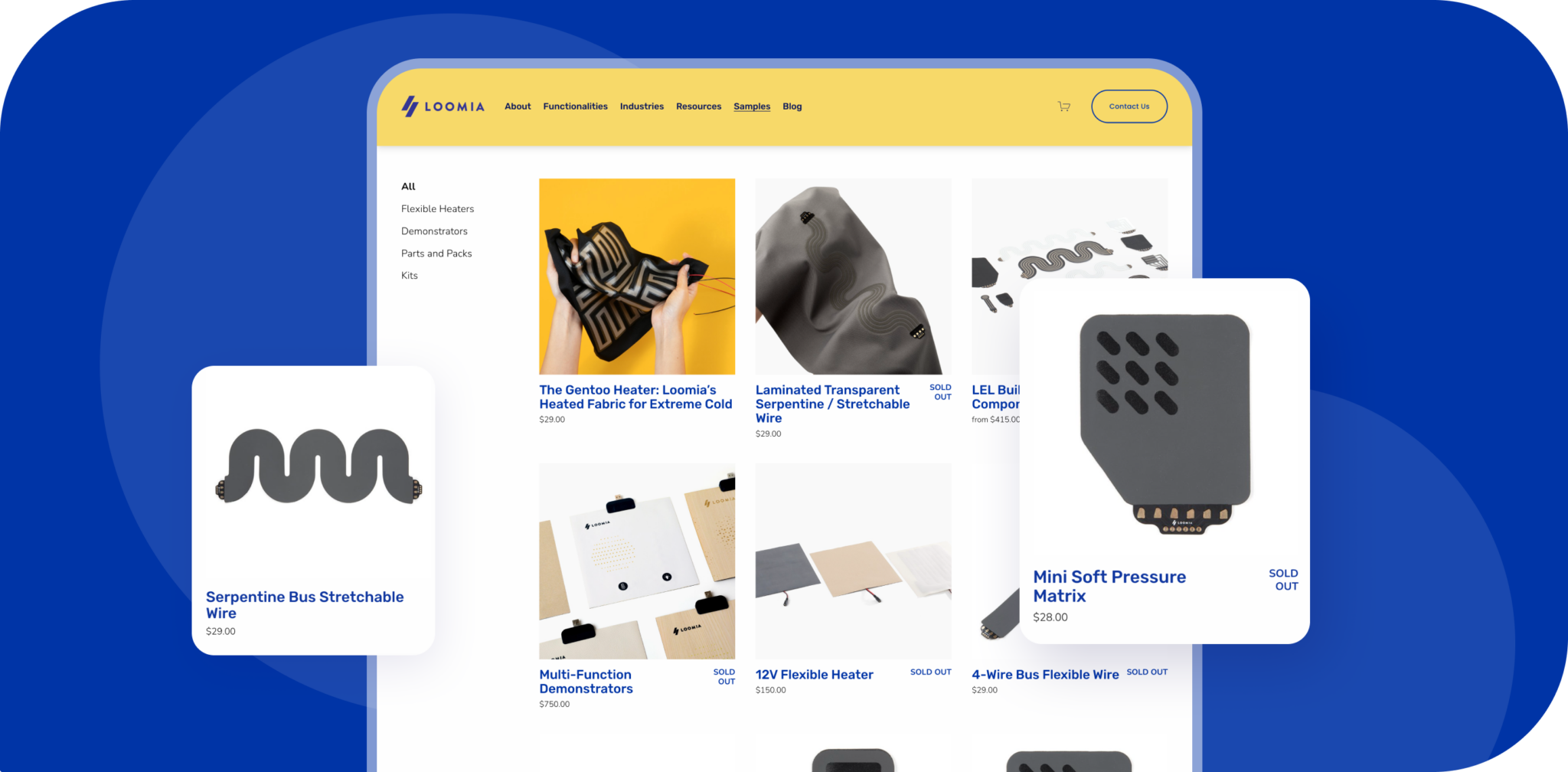Project background
Overview
Loomia is a leading innovator in smart textiles, trusted by Fortune 500 companies for advanced solutions in heating, pressure sensing, cabling, and antennas. Their patented Loomia Electronic Layer (LEL) provides a mesh-based alternative to traditional flexible PCBs and E-textiles, embedding technology directly into fabrics.
To enhance the value of their technology, Loomia required an IoT platform that could securely collect and process environmental data (temperature, pressure, and moisture) from smart clothing. The system needed to leverage NFC (Near Field Communication) for data transfer and utilize blockchain technology for decentralized, secure storage. Users would be able to view, manage, and monetize their personal data using cryptocurrency.
Our team was responsible for designing and developing three applications: two for reading NFC tags and one for emulating tags in cases where hardware was not available. The challenges were building seamless communication, decentralized data storage, and a user-friendly interface for both technical and non-technical users.
Project Goals
- Develop a mobile NFC application to read environmental data from embedded smart fabric sensors.
- Allow users to store, manage, and monetize their data via a blockchain-based decentralized platform.
- Create secure and anonymous data exchange with cryptographic verification.
- Build an NFC emulator to test functionality before the final hardware release.
- Design an intuitive user interface that clearly visualizes sensor data in graphs and tables.
- Blockchainapp
- 5team members
- 1000+hours spent
- Blockchain & Web3domain
Challenges
- Since production NFC-enabled garments were still in development, we needed to create a tag emulator for testing.
- Scalability and efficiency while using Storj.js for decentralized data storage.
- Handling low-latency data transfer from NFC tags to mobile applications.

Our approach
Solution
To develop an efficient and secure NFC-based data exchange platform, we designed a three-application ecosystem that connects NFC-enabled smart textiles with a blockchain-powered data marketplace. Our team started by creating an NFC reader app that captures environmental parameters such as temperature, pressure, and moisture from smart clothing. This app was built for seamless data retrieval and transfer via mobile devices.
Since the final NFC-enabled garments were still in development, we also developed an NFC tag emulator to simulate data collection. This allowed us to conduct thorough testing and debugging before the actual hardware was available. In parallel, we built a web application that allows users to manage and monetize their collected data. The web interface provides clear visualizations of the gathered information and offers options for users to sell their anonymized data in exchange for cryptocurrency.
For security and efficiency, we integrated Storj.js for decentralized data storage, user privacy and protection against unauthorized access. We also developed custom algorithms to process, categorize, and visualize the collected data in real time. The entire system was designed to be intuitive, scalable, and flexible, allowing for future enhancements and integrations.
Team
A cross-functional team of five specialists contributed to the development of this project. Backend engineers focused on API development, database management, and blockchain integration, ensuring smooth data handling and secure transactions. Mobile developers worked on building and refining the NFC reader and emulator applications, optimizing performance and connectivity. Frontend engineers created a user-friendly web interface, making it easy for users to access, analyze, and manage their data. A blockchain engineer was responsible for designing the decentralized storage system and implementing cryptocurrency transactions. The project manager coordinated the workflow, ensuring alignment with client expectations and timely delivery.
Results
The final product delivered a fully functional NFC-based data exchange system that allows real-time collection of environmental data from smart textiles. Integration of NFC and blockchain technology provided a secure and private method for handling user data. The intuitive visualization tools allowed users to track metrics easily and gain insights from their collected data.
Beyond functionality, the platform introduced an innovative monetization model, allowing users to sell anonymized data for cryptocurrency tokens. The introduction of an NFC tag emulator also played a crucial role in accelerating the development process, allowing continuous improvements before the final hardware was ready. The system successfully met the client’s requirements and provided a foundation for future enhancements.
The next phase of development will focus on enhancing the platform with AI-powered insights, so the system can provide personalized recommendations based on collected data. Expanding the data marketplace with more buyers and analytical tools will allow researchers and businesses to extract deeper insights from user-shared information. Multi-platform support is also planned, extending compatibility beyond NFC-enabled smart textiles to additional wearables and IoT devices. These enhancements will further establish the system as a leading solution in secure and decentralized data exchange.







